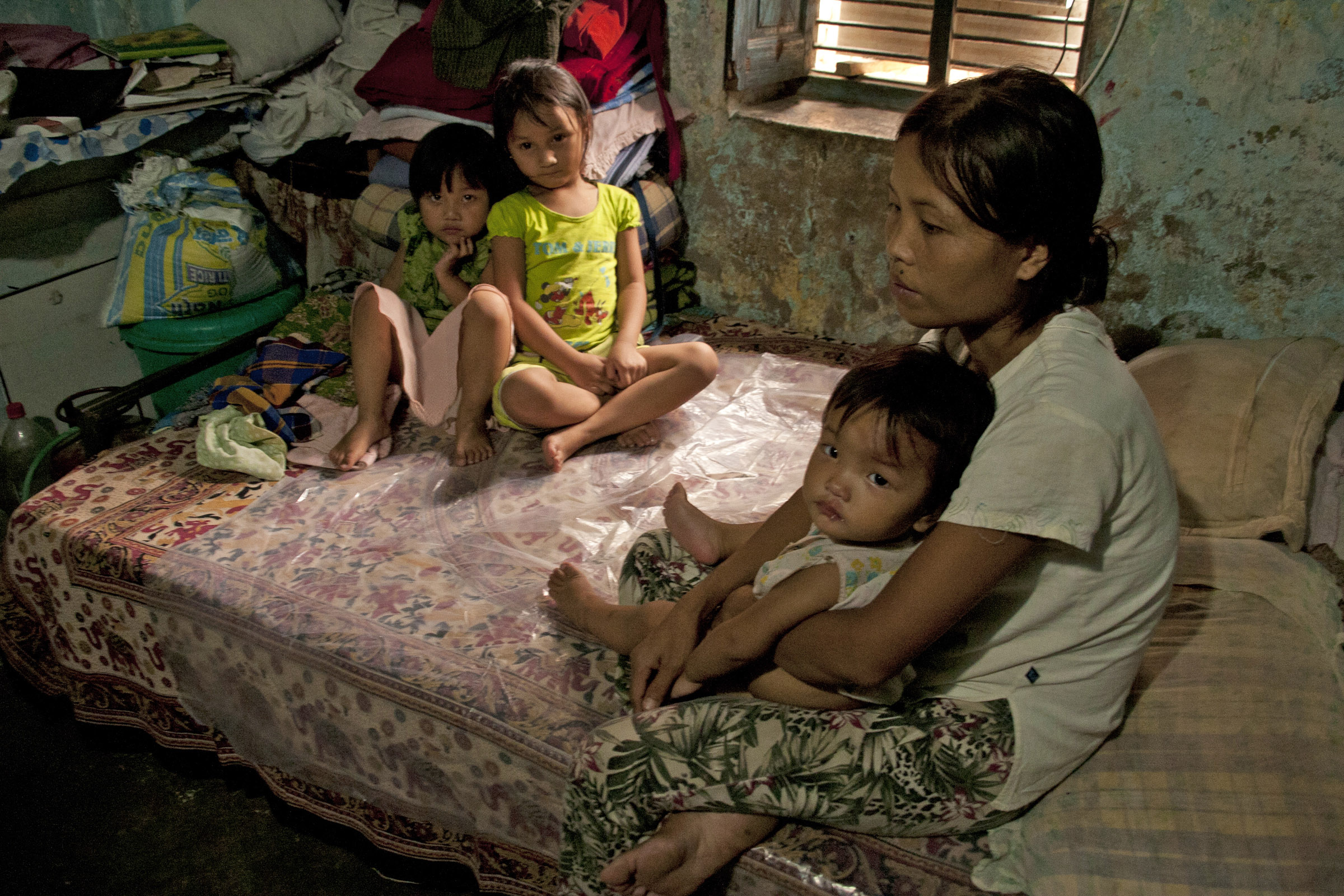The Chins have suffered human rights violations by Myanmar’s military rulers for years. Human Rights Watch says the abuses include forced labour, arbitrary arrests and detention, torture, religious repression and other restrictions of fundamental freedoms.
Most of the estimated 100,000 Chins who have fled Myanmar are living in India’s northeastern Mizoram State bordering Myanmar, but the UN Refugee Agency (UNHCR) does not have access to Mizoram, so many of them migrate to New Delhi in the hope of better protection and the possibility of jobs.
UNHCR says there are more than 10,000 Chins in New Delhi, of whom nearly 7,000 are recognized as refugees, and fewer than 600 were resettled from New Delhi in 2011, mostly to the United States.
Lem was recently granted refugee status, but the prospects of a better future for her and her family are slim. She worries about dying. Since fleeing from Chin State in northwestern Myanmar to New Delhi two years ago, she has contracted tuberculosis (TB), as has her youngest baby, who is also epileptic. Unable to work, she can do little to support her husband, who works 80 hours a week in a factory to earn US$60 per month. Their monthly rent is $45.
Nayana Bose, the UNHCR associate external relations officer, says the UN Refugee Agency’s ‘smart card’ - an electronic card with the holder’s biographical information - ensures that refugees are not deported, arbitrarily detained or harassed while in India. “UNHCR documentation is a form a protection and is respected by the authorities,” she told IRIN.
Some refugees say this is not enough. UNHCR and the Indian government share responsibility for New Delhi’s refugees, but India has no legislation for protecting the rights of the more than 185,000 refugees it hosts. The country is not party to the 1951 Refugee Convention or its 1967 Protocol, nor does it have a national refugee protection framework.
|
Photo: Amelia Shepherd-Smith/IRIN |
| Many Chin live in run-down tenement blocks |
Salai Summ, the coordinator of the Chin Refugee Committee (CRC) in New Delhi, says health and education are the two biggest challenges. Although the Indian government provides free primary schooling, lessons are taught in Hindi, and because of bullying, few Chin children attend.
The Chin have access to the public hospital system, for which UNHCR provides a partial reimbursement of fees. “[But] the fact is, the standard of public schooling and healthcare in India in not good, so people will do what they can to go private,” said Summ.
The most difficult aspect of their lives in India is that the Chin refugees in New Delhi feel they are persona non grata, meaning that they are not welcome.
They do not have bank accounts or driving licenses and are not allowed a work permit. There are jobs in the informal sector, where the Chin are employed mostly in factories, but getting to work is often difficult. Most Chin are Christian and prefer not to work on Sundays, but the demand for jobs is high, and labour is plentiful, which also limits their opportunities.
CRC president Bo Nai said working women are particularly vulnerable to sexual harassment and gender-based violence. “Chin women in the factories often suffer from harassment, but they stay because they need the money. They do shift-work, so they travel at odd hours, which leaves them more vulnerable.”
Selin Matthews, project manager at Don Bosco Ashalayam, an Indian NGO and UNHCR’s implementing partner, concedes that relations between Chins and local Indians in Delhi are not good.
“The problem is two-fold: firstly, they think the Chin are economic migrants, so they don’t need sympathy. Secondly, they don’t understand Chin culture - unrelated Chin men and women will live together, and Indians think this is shameful,” Matthews said.
UNHCR offers refugees a range of support mechanisms, from cash transfers and grants to vocational training, livelihood projects, and production centre work, but Matthews said the financial assistance is temporary and Chin refugees are unhappy about this. “Delhi is an expensive city and many do struggle.”
A recent policy shift now makes it possible for refugees to work in the private sector, but the CRC’s Nai noted that “Without higher education, which the refugees cannot currently afford, the reality is that the next generation of Chin will be doing factory work, just like their parents.”
*name changed.
as/ds/he
This article was produced by IRIN News while it was part of the United Nations Office for the Coordination of Humanitarian Affairs. Please send queries on copyright or liability to the UN. For more information: https://shop.un.org/rights-permissions




